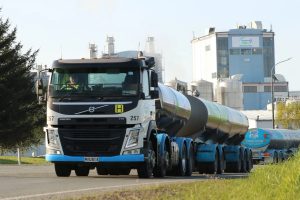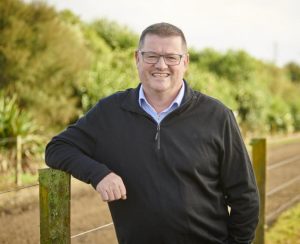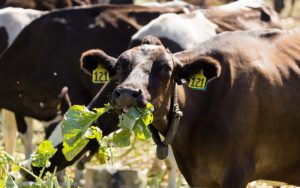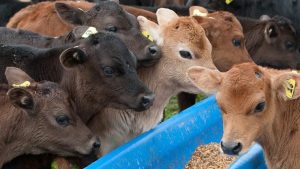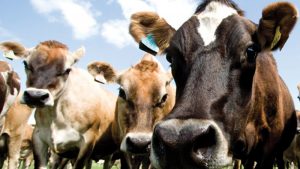
“We have had to look to other sources of income,” Croot said.
Cookson is employed part-time with Cow Manager, a herd management system, and Croot is a tutor for Dairy Training, which provided further education for the dairy sector.
The pair had also diversified their business and now raised some bull calves and sold them in the meat trade, he said.
Croot said they also managed the risk of cost increases by hedging their milk price. Hedging a price means they agree on a minimum price for their milk.
Their story is reflected on other family farms and across small agribusinesses.
Country manager for accounting software provider Xero Bridget Snelling said small agribusiness had been feeling the pinch this year.
Xero’s small business insights for agriculture showed sales fell by 6% year-on-year last month for all those that used their software, compared to a 5.8% increase for non-agriculture businesses.
Small agribusinesses included businesses that grew crops, raised animals, grew and harvested timber, and harvested fish and other animals from farms or their natural habitats.
Another challenge small agriculture businesses faced was wage increases, with wages up 5.2% in October this year, a contrast to the 2021 sector average of 3.5%, she said.
Job numbers across the sector fell by 0.3% over the year to October, copared to the national average 7.4% year-on-year increase, Snelling said.
“Not only is the agri sector selling less, but the cost of doing business is going up, with a 7.2% inflation,” she said.
A record milk price had been “sucked up” by massive increases in costs, Croot said.
It was particularly stressful that they didn’t know what the cost of future regulations would be for the business, Croot said.
“There is no way around it. Regulatory changes will affect our bottom line, so we need to farm from a different mindset. Our customers demand we meet their environmental expectations, and without customers we don’t have a market for our milk,” he said.
Many “old-school” farmers faced with regulatory changes would leave the industry which created opportunities for the younger generation to build future-proofed sustainable agribusinesses, he said.
Snelling said for small business owners, the cost of doing business had gone up but their income had not kept up.
Smaller business generally had fewer resources available and relied on revenue they generated. Larger businesses often had diversified revenue streams or had more resources available to weather storms, she said.
Small businesses needed to keep an eye on cash flow and cash flow forecasting, Snelling said.
They also needed to manage expenses and look at digital tools that could help them understand their business better and put in control when storms came, Snelling said.
Cookson said city dwellers did not see that farming was constant work to meet the needs of the animals, consumers and the government.
There was still a stigma around talking about mental health in the farming community as many of the farmers were generational and followed old narratives in the way they thought about it, Cookson said.
“We can still honour our heritage and ancestors without carrying their baggage. The city-dwellers do not understand the mental and physical strength it takes to get out of the bed in the dark every morning and brave the elements for your herd and the country,” she said.
For the pair, a sustainable business meant one where they were able to incorporate farm and home life, and their goals into one, she said.




